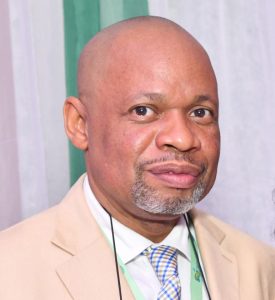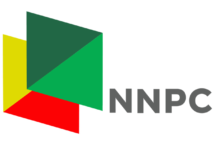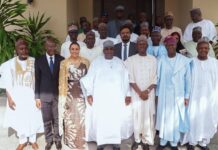ENERGY FORESIGHT with FRANK UZUEGBUNAM
Nigeria, often lauded as Africa’s largest oil producer, finds itself in a precarious economic conundrum yet again. The recent surge in crude oil prices has reignited discussions around the country’s long-standing battle with petrol subsidies. This battle, often veiled in secrecy and political maneuvering, highlights the intricate interplay between economic realities, government policies, and public welfare.
At the heart of Nigeria’s petrol subsidy saga lies a fundamental paradox: while being endowed with vast oil resources and despite its status as a major oil producer, the country struggles to refine its crude oil domestically, thus heavily relying on imported petroleum products to meet its domestic consumption needs. This dependence, coupled with the government’s insistence on capping retail petrol prices results to a convoluted system marked by subsidies and obscured financial dealings, exacerbating economic imbalances.
The country’s abundant oil resources, therefore, stand in stark contrast to its limited refining infrastructure, highlighting a systemic flaw in its energy sector. Meanwhile, the government’s insistence on regulating petrol prices adds another layer of complexity, as artificially low prices create a gap between market realities and consumer expectations. This intricate interplay of factors gives rise to a tangled web of subsidies and obscured transactions, further complicating Nigeria’s economic landscape. The petrol subsidy saga underscores the need for comprehensive reforms to address structural deficiencies in the energy sector and promote transparency in government policies and financial management.
The recent surge in crude oil prices, highlighted by Brent crude climbing from $77 to $86 per barrel, has added strain to Nigeria’s already burdensome subsidy predicament. While higher oil prices theoretically offer a revenue boon for oil-exporting nations like Nigeria, the country’s diminishing production capacity impedes its ability to fully capitalize on this potential windfall. As a result, the Nigerian National Petroleum Company Limited (NNPCL) is confronted with an escalating subsidy bill, exacerbating the strain on the nation’s delicate economic landscape.
Despite the allure of increased oil revenues, Nigeria’s inability to maximize production levels curtails its ability to reap the benefits of surging global oil prices. This conundrum underscores the fragility of Nigeria’s economic framework, as it grapples with the dual challenge of dwindling production capacity and rising subsidy obligations. The escalating subsidy burden not only strains the finances of the NNPCL but also adds pressure to an already precarious economic situation, necessitating prudent management and strategic reforms to mitigate further destabilization.
The opacity surrounding Nigeria’s petrol subsidy program adds another layer of complexity to the issue. Reports allege that the NNPCL utilizes various financial mechanisms, including diverting dividends from Nigeria LNG and deducting subsidy amounts from crude oil sales, to fund petrol subsidies. However, the lack of transparency regarding the exact subsidy figures raises concerns about accountability and governance.
The contentious nature of petrol subsidies in Nigeria is further exacerbated by conflicting narratives from government officials and international institutions. While the World Bank asserts the existence of a partial subsidy and advocates for market-driven petrol prices, the Nigerian government oscillates between denying the return of subsidies and justifying intermittent interventions to stabilize fuel prices amidst economic hardships.
President Bola Tinubu’s move to scrap petrol subsidies in 2023 was met with initial optimism, touted as a step towards curbing corruption, enhancing efficiency, and redirecting funds towards critical sectors such as infrastructure and social programs. However, the subsequent realities paint a different picture. Despite promises of reinvestment, tangible improvements in key sectors remain elusive, leaving citizens to grapple with soaring living costs and dwindling purchasing power.
The recent depreciation of the Nigerian naira against the US dollar adds another dimension to the subsidy dilemma. While the naira’s free-fall should theoretically result in higher petrol prices to reflect the increased import costs, the government’s reluctance to adjust retail prices underscores the persistent presence of subsidies, albeit veiled under the guise of stability maintenance.
Moreover, the lack of accountability surrounding the utilization of funds freed up by subsidy removal exacerbates public skepticism and resistance towards further price adjustments. Reports of State Governors hoarding dollars instead of investing in human capital and infrastructure highlight the disconnect between policy intentions and on-the-ground realities, further eroding trust in government actions.
In essence, Nigeria’s complex dance with petrol subsidies epitomizes the intricate dynamics between economic exigencies, political expediency, and public welfare. While the government grapples with balancing fiscal prudence and social stability, citizens endure the brunt of economic uncertainties and policy ambiguities.
Moving forward, addressing the subsidy conundrum necessitates a concerted effort towards transparency, accountability, and holistic economic reforms aimed at fostering sustainable development and equitable prosperity for all Nigerians.























